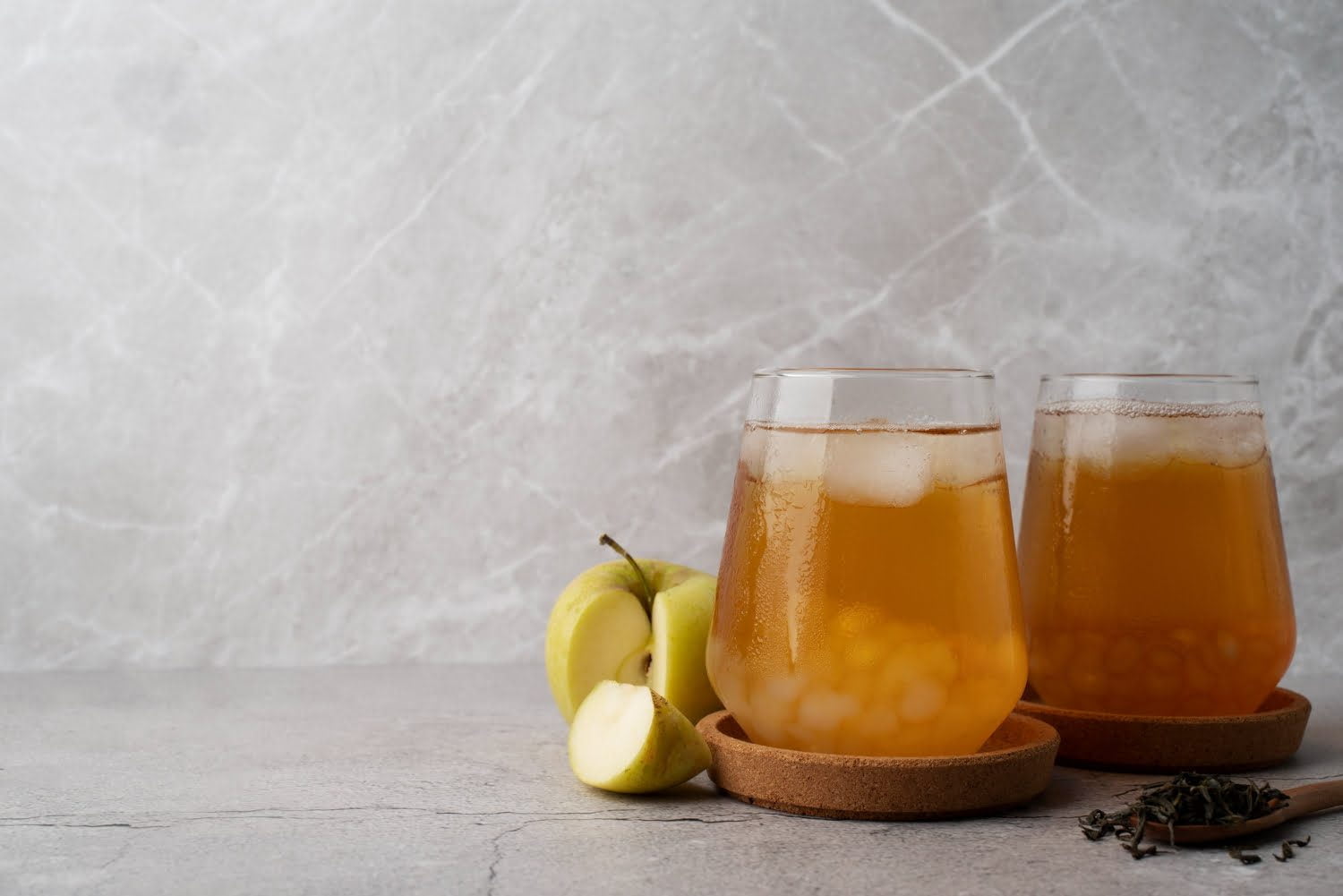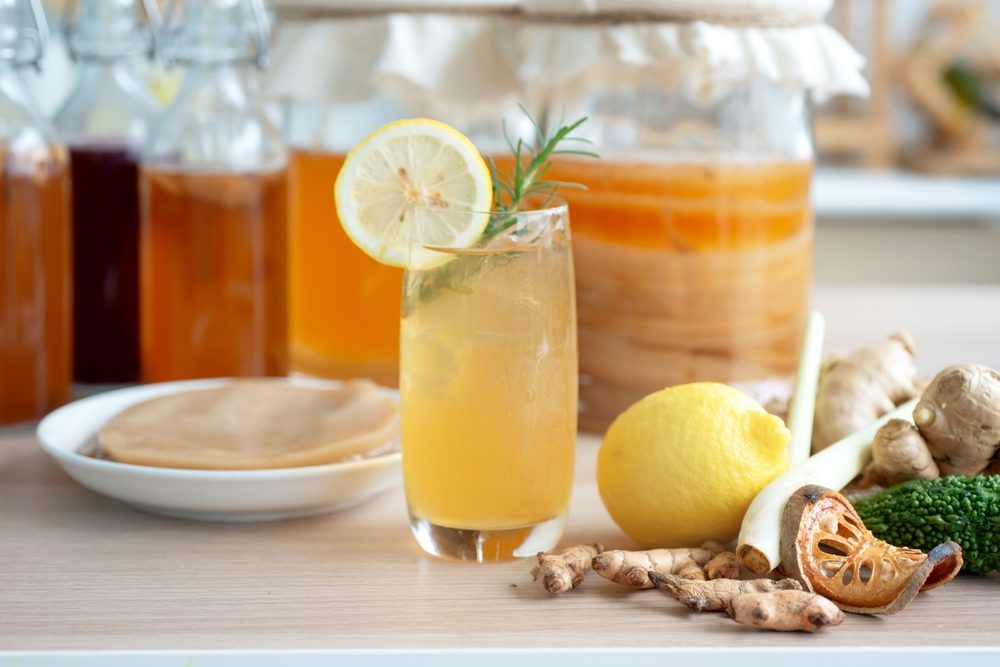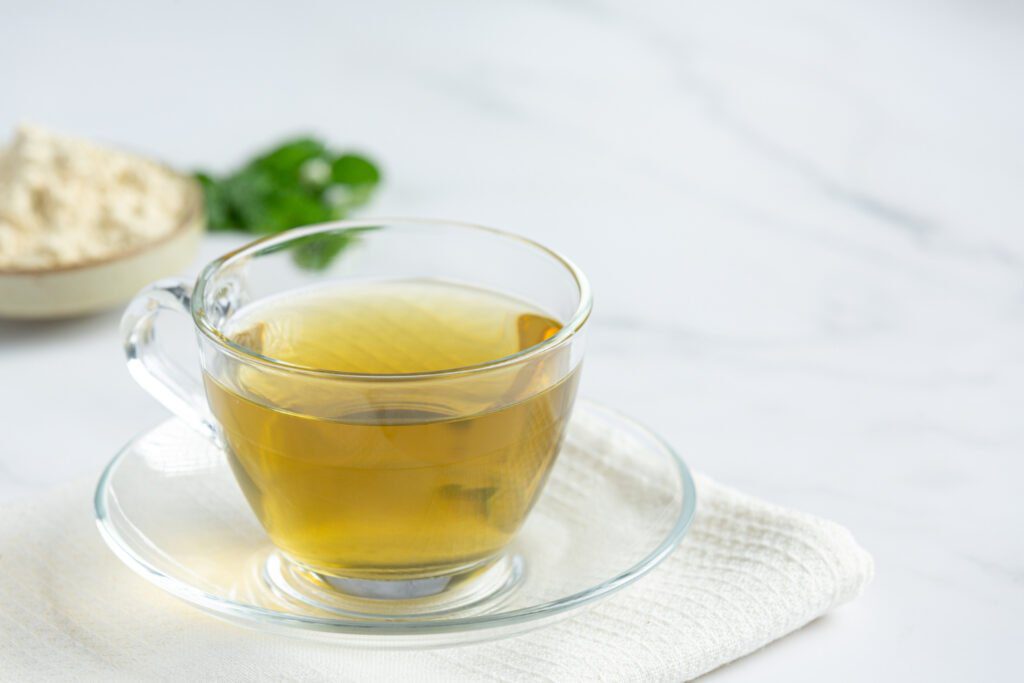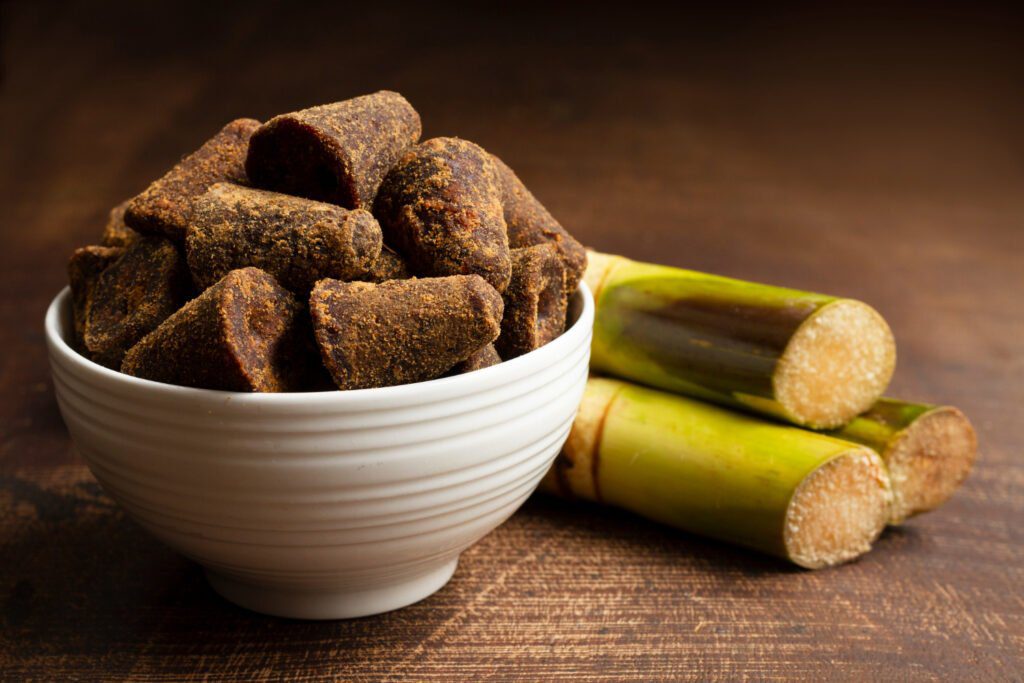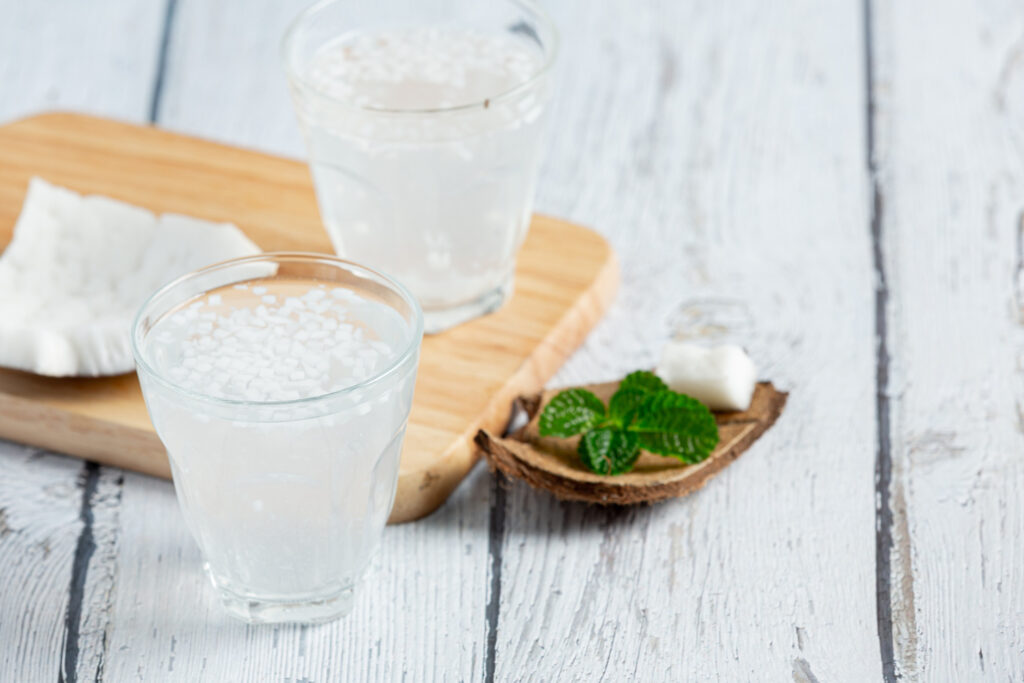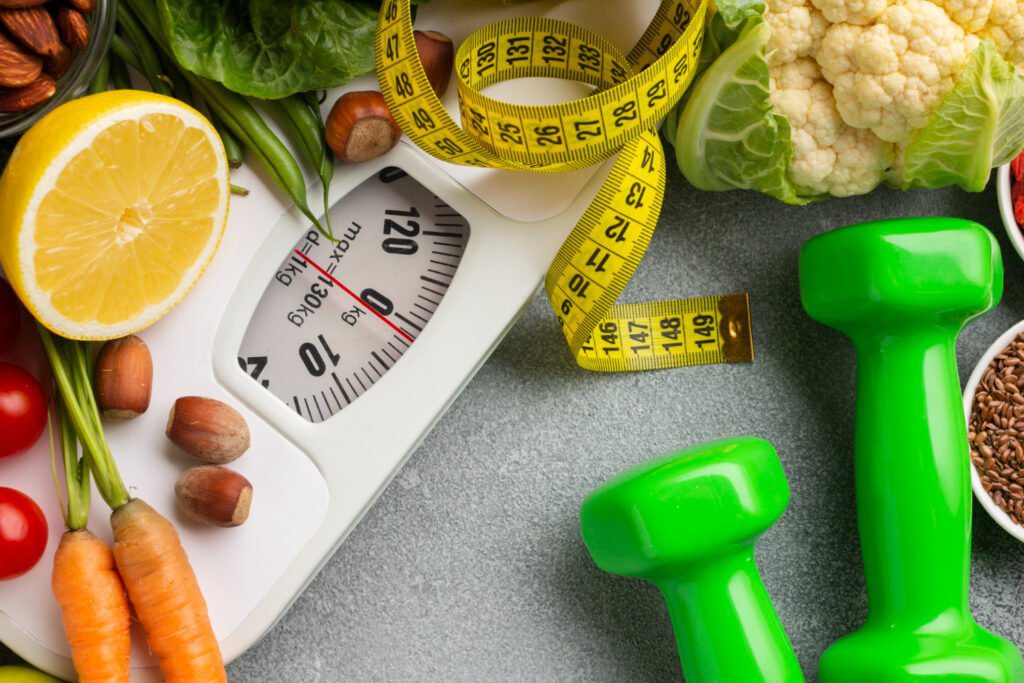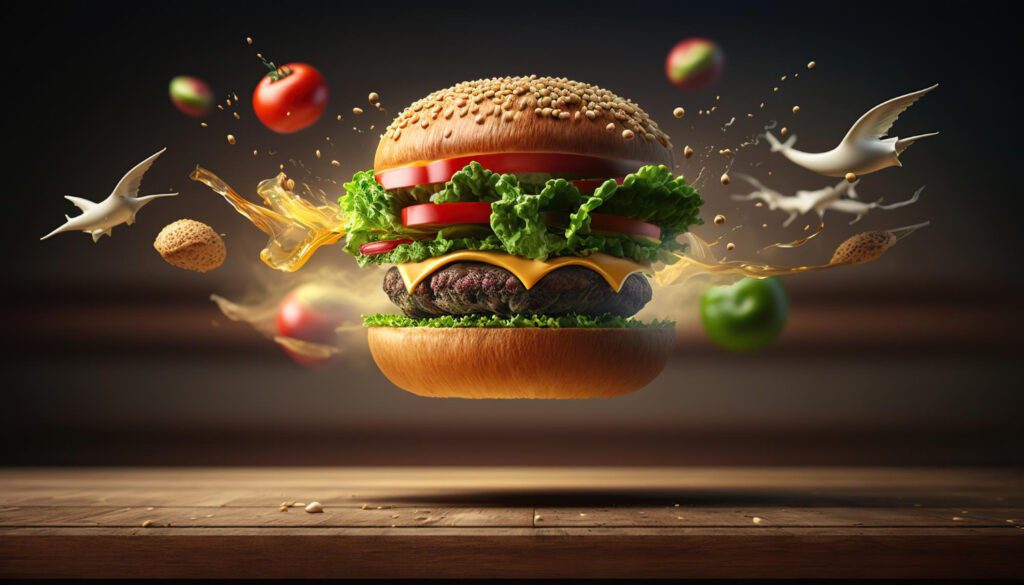Have you tried kombucha? It is a fermented and probiotic drink rich in antioxidants, which is considered a gift from the gods.
Origins of Kombucha.
- Of Asian origin and called immortality tea , traditional Chinese medicine has used it for more than two millennia, since many benefits are attributed to this probiotic drink with purifying, antioxidant, energetic and immune system restorative properties.
- It is a sugary tea fermented with a gelatinous ‘fungus’ , composed of microorganisms with the scientific name Medusomyces gisevi , which are a mixture of fungi and bacteria and turn it into a probiotic drink.
- Its origin is lost between Japan, China and Russia, perhaps because kombucha could be created by leaving a tea with sugar neglected for a few weeks that was fermented alone and the drink originated naturally in different places around the world.
How is It Done?
- Kombucha tea can be made with various types of black, red, and green tea .
- The most classic is made with sweetened black or red tea to which the mushroom (a soft, gelatinous mass) is added and kept at a constant temperature around 25-30º for a few weeks in a closed container.
- When the fermentation is finished, the fungus is removed and the drink is stored cold to stop the process and not become more acidic.
For athletic people , kombucha tea is an interesting drink to drink before or after training, mainly because, being a food fermented by microorganisms, it is a good probiotic that helps:
- Maintain digestive health, better absorbing nutrients and supporting the immune system
- It provides antioxidants (polyphenols) and tea and small doses of caffeine, the physical and mental stimulant to maintain the rhythm of a life with training, work, family, friends…
- It is a fermented food like yogurt, kefir or sauerkraut. In which the bacteria and microorganisms present in the tea with sugar begin the fermentation process and transform this infusion into a probiotic drink, rich in bacteria beneficial to health, which add to the tea’s antioxidants or polyphenols and caffeine.
What Type of Fermentation Occurs?
Kombucha tea is obtained mainly by lactic fermentation , to give an acidic drink with gas bubbles with a curious flavor.
Fungi and bacteria convert sugar (sucrose) into glucose and fructose and then into ethyl alcohol (drinkable) , carbon dioxide (CO2) and acetic acid , which coexist in the drink with the fungus in a beneficial symbiosis, which forms in the surface of the liquid a gelatinous-looking body similar to a jellyfish.
If the mushroom is fed continuously, this process has no end, which is why kombucha is called ‘the mushroom of immortality’. The main metabolites identified in the fermented drink are: acetic, lactic, gluconic and glucuronic acid, ethanol and glycerol.
Does Kombucha Tea Have Alcohol?
It may have small amounts of alcohol due to alcoholic fermentation in the process that may give rise to some ethyl alcohol, but in a proportion of less than 0.5%, which is very small. This is why some people say that its taste and smell reminds them of cider.
Why Has Kombucha Tea Become Fashionable?
Like all superfoods, it is attributed multiple beneficial properties, from extending life to curing cancer. In reality, there are few scientific studies that demonstrate the long list of benefits, until now.
What we can say is that, like tea, it is a drink rich in antioxidant polyphenols and, being a fermented product, it acts as a probiotic , improving the balance of the intestinal microbiota.
Therefore, like other fermented foods, it can help improve digestion, avoid constipation and prevent and improve diarrhea and strengthen the immune system .
The few laboratory studies were done years ago in Russia, where it is a widely used drink and they praised it without much scientific evidence as the ‘elixir of long life’ because they said it prolonged the life of mice and helped prevent and recover from various types. of tumors.
What does it taste like?
The kombucha drink has a peculiar flavor, like sour cider, so if you don’t like drinking it, you can use it like vinegar, giving an acidic flavor and acting as a natural food preservative.
If you make kombucha tea at home, be careful with contamination problems with molds, in addition to spoiling the drink they can create allergic reactions and digestive problems.
What are we left with?
Like all superfoods that become fashionable, the kombucha drink is sold as a novelty and at a high price until it passes and drops.
It is best to try it looking for a quality kombucha tea, refrigerated unpasteurized and in glass.
There are flavors, but don’t miss the opportunity to try its peculiar and acidic natural flavor that with the bubbles looks and tastes like cider. And if you like it and it suits you, you can try making it at home with the kombucha mushroom itself that you can ‘buy’ or get for free in herbalists and online natural food stores and natural tea with sugar.
In the Sport Life editorial office, we have tested the Komvida Organic Kombucha kombucha tea ( komvida.com ), which is marketed as a refrigerated organic food and in unpasteurized 250 ml glass bottles, and is available in three flavors: green tea, ginger and lemon and red fruits. And 50% of the editorial team liked it. That is, those of us who like acidic and strange flavors like me, loved it, although it tastes like Asturian cider to me!
Those with a sweet tooth who are looking for a sweet flavor did not like it as much.
Our advice: take it COLD and DO NOT SHAKE because with how it has bubbles, when you open it you can make a shower of kombucha as if you were celebrating your first place on the Tour de France podium!!!
Can drinking kombucha tea have side effects?
Well yes, like everything in life, overusing a food, no matter how healthy it may be, can cause problems for sensitive people or people with illnesses. In the case of superfoods, the almost magical healing properties attributed to them can cause some seriously ill people to have side effects when eating these foods, either because they take them in large quantities or because their digestive system is not prepared for the ingredients they contain. contains, sometimes they are very powerful or it is the first time they have been tried.
In the case of kombucha tea, gastrointestinal problems may appear in sensitive people, as well as poisoning due to contamination of the tea with molds, generally of the Aspergillus type .
And there are reports of kombucha-related hepatotoxicity and lactic acidosis in the United States and Australia, in people who drank very high doses of kombucha tea.
Advice : Try it with caution, we usually think that ‘natural’ foods are very healthy for everyone, and if your body is sensitive to some fungi and bacteria, you may find yourself with gas and poor digestion problems at first, which if they persist later Having tried kombucha tea in small quantities for a week or two indicates that it is not a drink for you. The same thing happens with ‘hyperdoses’, even water can kill you if you drink several liters of water during a day. No matter how much you like kombucha tea or it seems healthy for you, just drink a glass or two a day, its probiotic and antioxidant effects will give you more and better effects in a moderate amount.
Did You Know?
Kombucha tea is considered a gift from the gods that should not be sold, but rather the ‘kombu’ or mushroom-like gelatinous substance that contains the bacteria to start fermentation, as is the case with kefir.
Bottom Line.
Kombucha tea is a fermented beverage made from black or green tea, sugar, and a symbiotic culture of bacteria and yeast. It has been consumed for centuries for its potential health benefits, including improved digestion, immune support, and detoxification. While more research is needed to fully understand its effects, Kombucha tea is a popular and refreshing drink that can be enjoyed as part of a balanced diet.
How we reviewed this article:
Our team of experts is always monitoring the health and wellness field, ensuring that our articles are updated promptly as new information emerges. See Our Editorial Process
May 13, 2025
Written By: Danielle Pashko
Reviewed By: Vandana Sheth
Written By: Danielle Pashko
Reviewed By: Vandana Sheth

 Workout
Workout
 Meditation
Meditation





 Contact Us
Contact Us

